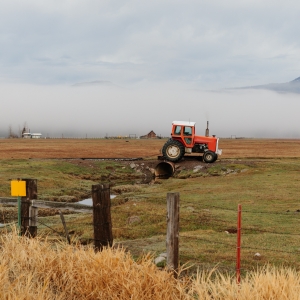The Stream, November 24, 2021: Industrial Fisheries Are Costing Millions of Africans Their Jobs
YOUR GLOBAL RUNDOWN
- The U.S. Supreme Court denies claims that Tennessee is taking Mississippi water from a shared aquifer.
- Industrial fisheries ran by international corporations are threatening the livelihoods of millions of Africans.
- One of Britain’s largest water utilities announces it will meet water quality targets in nine years.
- Bamboo could protect Ugandans from floods.
Thousands of women and children are stranded without clean water at the Belarus border.
“On the Belarusian side, the guards would sell us food and water but would ask for astronomical prices. They would sell us a bottle of water or one biscuit for the children for $50 because they knew the mothers would pay.” – Sarkawt, a 36-year-old refugee who was trapped at the Belarus border for a month with his wife and three children. Thousands of women and children have been trapped by military officials at Belarus’ border with Poland. The exact number of people at the Belarus-Poland border is unknown, but a Polish NGO officials said more than 2,500 women have applied for asylum in Poland this year. Women at the border, many of whom are fleeing war torn Middle Eastern countries with their families, told Al Jazeera that they’ve had to pay high prices for bottled water and food and were given dirty water by Belarusian military guards, or forced to go without water all together. One woman, according to her husband, has been hospitalized due to the cold and lack of drinkable water.
IN RECENT WATER NEWS
In Case You Missed It:
How a Federal Drought Relief Program Left Southern Oregon Parched—and Contributed to the Ongoing Groundwater Crisis in the West – For two decades, the Bureau of Reclamation incentivized farmers to pump water faster than the resource could recover, despite warnings from its own scientists. This year, residents of Klamath County paid the price, as hundreds of household wells went dry.
Where Is The Water Going? – Small farmers struggle as ag titans wheel profit. This piece was originally published by the Center for Collaborative Investigative Journalism and SJV Water as part of Tapped Out, a series documenting power, justice, and water in the rural American West.
HotSpots H2O: Unusually Powerful ‘Atmospheric River’ Pummels British Columbia and Pacific Northwest – This summer’s heat wave and wildfires weakened the landscape’s ability to absorb rainfall, further contributing to the destruction.
U.S. Supreme Court Rejects Mississippi Claims In Water Dispute WIth Tennessee
The U.S. Supreme Court unanimously rejected a claim that Tennessee has been taking water that belongs to Mississippi from an underground aquifer. According to an opinion written by Chief Justice John Roberts, Mississippi claimed the aquifer’s water, which sits below both states, belonged only to Mississippi. The court, however, stuck to its long-embraced concept of equitable apportionment, which calls for a fair share of supplies in state-to-state disputes over waterways.
TODAY’S TOP WATER STORIES, TOLD IN NUMBERS
$24 BILLION
Africa’s $24 billion marine fishing industry, a vital source of food and income for millions, is being threatened by illegal fishing practices by international fisheries. Although small-scale fisheries make a greater contribution to the continent’s economy by feeding and employing locals, industrial fisheries are overfishing in Africa’s oceans. Their practices are rarely monitored due to limited domestic and regional capacity, allowing the fisheries to continue exploiting African waters without repercussion.
16 YEARS
One of Britain’s largest water utilities, Severn Trent, pushed up its goal to improve river quality by 16 years, only days after Britain’s Environment Agency announced an investigation into sewage discharge into the country’s waterways. The company announced this week that they will aim to fulfill requirements of the Environment Act in nine years, rather than the original 25-year target.
ON THE RADAR
Bamboo is becoming more popular as a flood defense in Uganda, where more than 50,000 people are impacted by floods each year. Farmers, like 72-year-old Mbonagaija Nestoli, can also earn more income by growing the natural resource, which acts as a wall against swollen rivers and can stop riverbanks from collapsing.
EDITOR’S NOTE: We’ll be taking the rest of the week off for Thanksgiving, and will resume our regularly scheduled coverage on November 29.
Jane is a Communications Associate for Circle of Blue. She writes The Stream and has covered domestic and international water issues for Circle of Blue. She is a recent graduate of Grand Valley State University, where she studied Multimedia Journalism and Women, Gender and Sexuality Studies. During her time at Grand Valley, she was the host of the Community Service Learning Center podcast Be the Change. Currently based in Grand Rapids, Michigan, Jane enjoys listening to music, reading and spending time outdoors.







Leave a Reply
Want to join the discussion?Feel free to contribute!